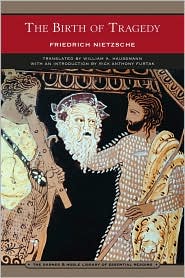Thanks of course to Dr. Kim Jackson for presenting this startling juxtaposition of "fin de siecle" aesthetic philosophies. Nordau's vision of "degeneration" and its characteristics is so akin to Nietzsche's vision of amoral, aesthetic, and symbolic brinkmanship that I originally thought the two thinkers shared the same philosophic objectives. It was only after rereading the Nordau piece that I realized he was wholeheartedly decrying the break with traditional forms, rationality, and stale classicism that Nietzsche came to exalt in The Birth of Tragedy and would continue to encourage and historicize in "Truth and Lies," The Gay Science, Beyond Good and Evil, and Thus Spoke Zarathustra. I was not alone in my misunderstanding; several of my more "unconventional" peers also believed Nordau to be "digging" his catalogue of fin de siecle characters and scenarios - those somewhat humorous imaginings of the rebellious, the non-traditional, the irreverent and revisionist. But it is precisely this revising with which Nordau took issue and Nietzsche championed.
While we in the liberal arts tend to declare Nietzsche the clear victor over Nordau's near-fearful conservatism, I can't say that I disagree with Nordau's presentation of "change" within the modern human institutions of fashion and vogue. Even Nietzsche hated the idea of "the fashionable," but he envisioned a type of symbolic or aesthetic genius that occupies the realm just beyond the fashionable, one step ahead, carving a path into untrodden territory while the rest of the world struggles to catch up, whereas Nordau would have us stay on the other side, never buying into "thedailywhat" or worrying about how to most fashionably and hiply revise or break with traditional and/or existing forms. Nordau would have us all self-fashion as stoic Greeks, but Nietzsche even shattered that idyllic (mis)representation of Attican perfection in The Birth of Tragedy, leaving us with what I believe to be a more honest and relevant system with which we can interact with, make sense of, and perhaps find our own meaning within the ever-quickening heartbeat of the modern cultural and existential aesthetic.



No comments:
Post a Comment